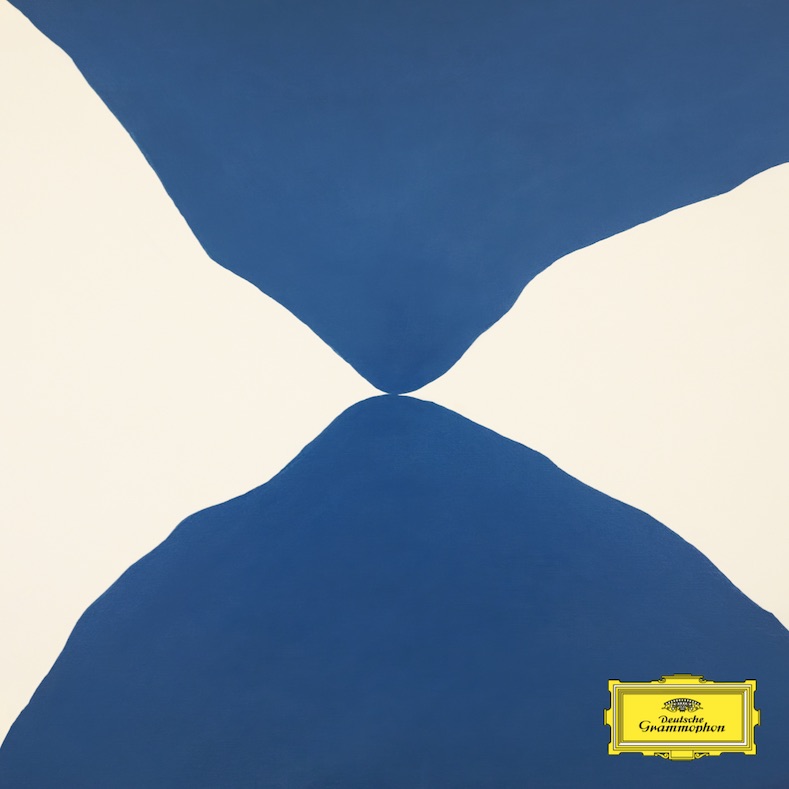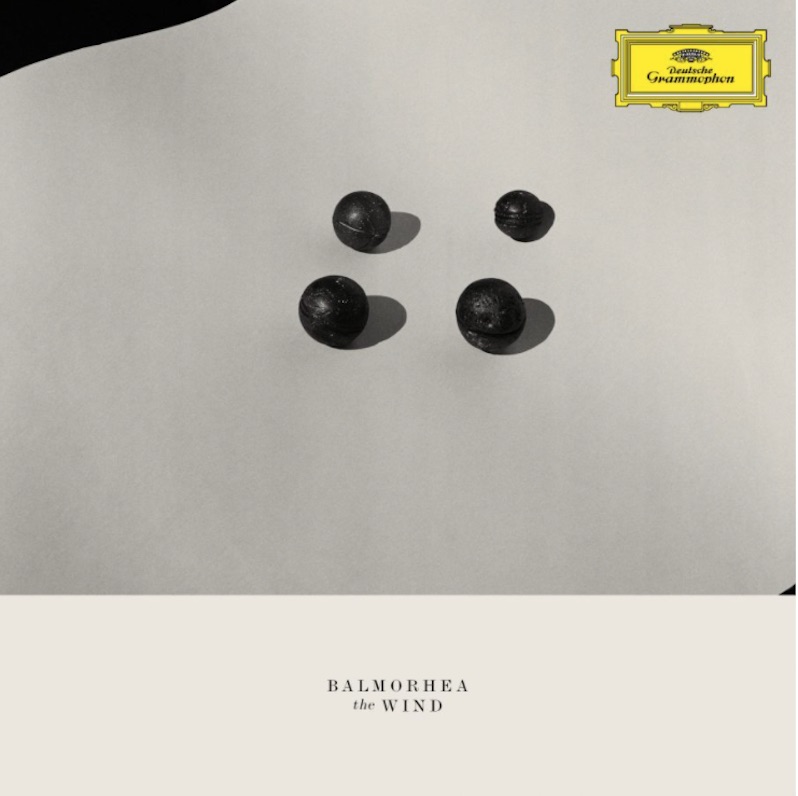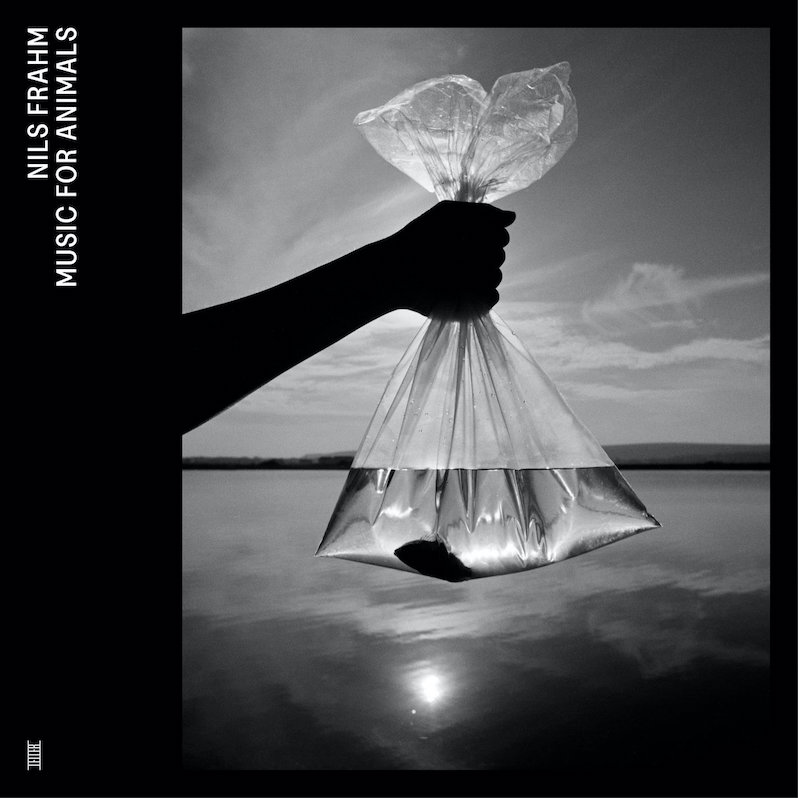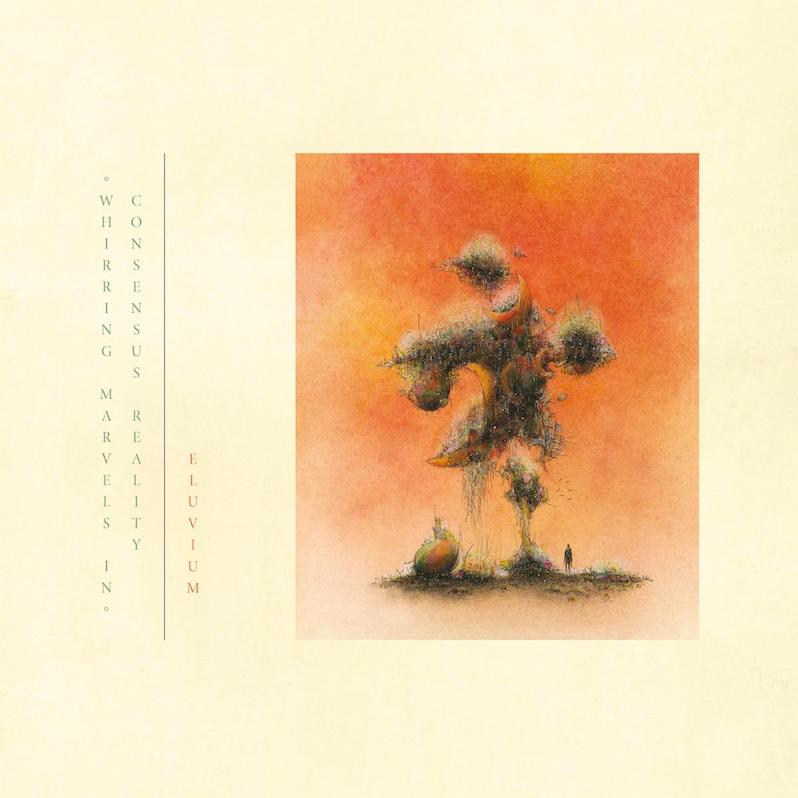Michael A. Muller : Mirror Music

There is no outwardly signaled elemental alignment to Mirror Music, the new full-length suite of compositions from Balmorhea member Michael A. Muller. Yet despite the gentleness of its iconography, abstracted white and blue pyramids in heaps, the simple titles of numbered mirrors, there is a sense of wind, of water. The underlying elements of these pieces are nearly identical: a synthesizer laying down a vast ebbing bed of sound upon which is laid often only a single other instrument, singing like waves or the curlicues of clouds and breeze across a plain. The lightness of the music, which is airy and serene, is not light in the sense of being without substance but instead of being without oppressive presence. Some albums or suites are good music to play while reading or thinking or conversing because they act as wallpaper in a derogatory sense, urging no attention to be paid to them. Mirror Music succeeds here in the inverted image: much like Brian Eno’s initial description of ambient music, it serves to spur on the mind engaging with it, refusing to take center stage but instead to intensify that which it surrounds.
On one hand, one might cite the undramatic ending to the cycle, which tapers off in what feels like mid-statement, as a missed opportunity for some kind of firm closing statement. But in the era of digital music, the perpetuity of ambience is achievable by setting the record to repeat, where the edges of the mirrors align near-perfectly, creating a constant wheel of music. Pedal steels weeping and singing, glossy and clean, take the melodic position on a number of these tracks, with a human voice emerging only once. The rest of the instrumentation seems so often to sink beneath the waves of the music; the mind takes flight roughly a third of the way through the record, with repeated listens on my end resulting in me scribbling increasingly hasty notes as the album ticked from “Mirror 3” to “Mirror 4,” with only the sudden emergence of the gentility of human voice and breath as the album neared its conclusion yanking me from my reverie. Again, this is not a signal of a record that fails to capture; indeed, it feels as though this rhapsodizing is in large part what Muller seeks to induce and more than succeeds in doing.
The line between post-rock, minimalism, ambient and contemporary classical music has long been a blurry one. After all, what we consider now to be orchestral work is more or less a historically inaccurate framework we constructed to gaze backward at completed aesthetic moments in time. Much like how the narrowing down of the precise moment genres like rock or jazz or funk or pop or rap successfully broke from history and established themselves becomes ever murkier the deeper you look, revealing how deeply fragmented and highly soluble genre boundaries really are, the line between orchestral (“classical”) and folk music, including rock and pop, becomes increasingly nebulous and vague the closer you seem to look, dissolving at last into quantum foam. Is this record contemporary classical music? Well, it’s released on Deutsche Grammophon, which seems to indicate at least some connection. Moreso, when we view genres less as purely a musicological description of work but additionally a kind of social cueing, a way to indicate to the listener how to listen as much as what is listened to, this classification for the suite serves the greatest good.
As a post-rock record or minimalist record, Mirror Music might not succeed, lacking the crescendoist aesthetic of the former and the rhythmic accretions of the latter. Even ambient doesn’t quite capture precisely what is happening here, often lacking the ironic intensity of most ambient works that serves to funnel inward the listening ear. Indeed, it is the label of contemporary classical music which seems to fit best both the spirit and shape of this music, like listening to architecture, a traced linework of thought and logic at the ocean’s heaving edge of the emotional heart. Shapes and patterns emerge and then dissipate. You learn to listen better.
Label: Deutsche Grammophon
Year: 2024
Similar Albums:
Michael A. Muller : Mirror Music
Note: When you buy something through our affiliate links, Treble receives a commission. All albums we cover are chosen by our editors and contributors.
Langdon Hickman is listening to progressive rock and death metal. He currently resides in Virginia with his partner and their two pets.




